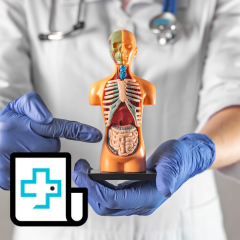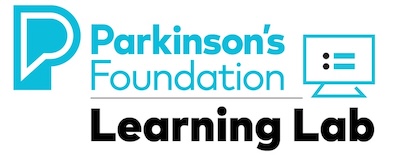Gastrointestinal disorders in Parkinson’s disease and other Lewy body diseases
 Parkinson’s disease (PD) is pathologically characterized by the abnormal accumulation of α-synuclein fibrils (Lewy bodies) in the substantia nigra and other brain regions, although the role of Lewy bodies remains elusive.
Parkinson’s disease (PD) is pathologically characterized by the abnormal accumulation of α-synuclein fibrils (Lewy bodies) in the substantia nigra and other brain regions, although the role of Lewy bodies remains elusive.
Constipation usually precedes the motor symptoms in PD, which is in accordance with the notion that α-synuclein fibrils start from the intestinal neural plexus and ascend to the brain in at least half of PD patients. The gut microbiota is likely to be involved in intestinal and brain pathologies. Analyses of the gut microbiota in PD, rapid-eye-movement sleep behavior disorder, and dementia with Lewy bodies suggest three pathological pathways. First, Akkermansia, which is increased in PD, degrades the intestinal mucus layer and increases intestinal permeability, which triggers inflammation and oxidative stress in the intestinal neural plexus. Second, decreased short-chain fatty acids (SCFAs)-producing bacteria in PD reduce the number of regulatory T cells. Third, SCFAs also aggravate microglial activation with an unelucidated pathway. In addition, in dementia with Lewy bodies (DLB), which is another form of α-synucleinopathies, increased genera, Ruminococcus torques and Collinsella, may mitigate neuroinflammation in the substantia nigra by increasing secondary bile acids. Interventions for the gut microbiota and their metabolites may potentially delay or mitigate the development and progression of PD and other Lewy body diseases.
Syllabus | |
Gastrointestinal disorders in Parkinson’s disease and other Lewy body disease Journal Article Quiz Evaluation Credit and Certificate Claiming | |
Target Audience
This activity is designed to meet the educational needs of:
- Physicians
- Physician Assistants
Learning Objectives
At the end of this activity, learners will be able to:
- Gain the most up-to-date scientific knowledge on the involvement of the gut–brain axis in the development and progression of PD from the gut microbiota perspective.
- Integrate acquired knowledge into diagnostic and therapeutic modalities of their practice.
- Determine the best strategies for diagnosing and treating patients to optimize patient outcomes.
- Implement skills and strategies for better patient communication.
Parkinson’s Foundation adheres to the ACCME’s Standards for Integrity and Independence in Accredited Continuing Education. Any individuals in a position to control the content of a CE activity, including faculty, planners, reviewers, or others are required to disclose all relevant financial relationships with ineligible entities (commercial interests). All relevant conflicts of interest have been mitigated prior to the commencement of the activity.
Authors:
- All authors of this article have no relevant financial relationships to disclosure. For more details, visit the journal on NPJ here.
Activity Director, planner and content reviewer:
- Svetlana Cvejic, Ph.D., has no relevant financial relationships to disclosure.
 In support of improving patient care, Parkinson's Foundation is jointly accredited by the Accreditation Council for Continuing Medical Education (ACCME), the Accreditation Council for Pharmacy Education (ACPE), and the American Nurses Credentialing Center (ANCC), to provide continuing education for the healthcare team.
In support of improving patient care, Parkinson's Foundation is jointly accredited by the Accreditation Council for Continuing Medical Education (ACCME), the Accreditation Council for Pharmacy Education (ACPE), and the American Nurses Credentialing Center (ANCC), to provide continuing education for the healthcare team.
Physicians
Parkinson’s Foundation designates this journal activity for a maximum of 0.75 AMA PRA Category 1 Credit(s)™. Physicians should claim only the credit commensurate with the extent of their participation in the activity.
Physician Assistants

Parkinson’s Foundation has been authorized by the American Academy of PAs (AAPA) to award AAPA Category 1 CME credit for activities planned in accordance with AAPA CME Criteria. This activity is designated for 0.75 AAPA Category 1 CME credits. PAs should only claim credit commensurate with the extent.
Available Credit
- 0.75 AAPA Category I CME
- 0.75 AMA PRA Category 1 Credit™
- 0.75 Participation
-----------------------------------------------------------------
Above, you have the ability to purchase individual journals.
To enroll the individual journal above, click "ENROLL". You may proceed with your course from there.
AFTER YOUR ENROLLMENT, you can find the journals you have purchased in your profile or in your email. You can also access them from this page.

 Facebook
Facebook X
X LinkedIn
LinkedIn Forward
Forward